In late Winter, a homeowner, agreed to a contract with a Texas company for a patio and backyard renovation totaling $134,700. As part of the agreement, the homeowner paid $50,000.00 in consideration towards the total project cost of $145,000.00. The contractor accepted these payments, prepared drawings for submission to the homeowner’s HOA, and represented that city permits had been approved. By late summer it appeared the project was ready to proceed.
Instead of work commencing, communication ceased. No construction began, and the homeowner was ultimately provided only a chalk line in the backyard where the patio was supposed to be built. Subsequent correspondence from the Landscape company indicated alleged financial distress, claims of an impending bankruptcy, and an inability to purchase materials or retain labor. Investigations revealed, however, that no bankruptcy filing was made and no building permits were ever obtained.
The managing sole member later admitted that he had commingled company and personal funds, leaving the enterprise without resources to perform its contractual obligations. Such conduct raises significant legal implications under Texas law. While LLCs are ordinarily protected from imposing personal liability on their members, that protection is not absolute. Where evidence demonstrates that the LLC operated as a mere alter ego of its owner, with commingling of funds, undercapitalization, or use of the corporate form to perpetrate fraud, courts may pierce the corporate veil to impose liability directly on the individual.
In this matter, the homeowner has asserted claims for breach of contract, fraud, and money had and received. Beyond contract breach, the facts support veil-piercing arguments and personal liability for actual fraud under Texas Business Organizations Code §21.223(b).
Misrepresentations concerning project readiness, false assurances about city permits, and misleading statements about bankruptcy status each provide independent bases for a fraud claim.
The lesson is instructive. Consumers should be diligent when entering agreements with contractors and should verify licensing, reputation, and capitalization before transferring substantial funds. More importantly, the misuse of the LLC shield to defraud clients is not tolerated by Texas courts. When a homeowner pays $50,000 and receives nothing more than a chalk line in the backyard, the law provides remedies—not only against the company that defaulted, but against the individual who operated that company as an instrument of fraud.
When a contractor accepts substantial payments and fails to perform promised work, Texas law provides multiple avenues of recovery, including breach of contract and violations of the Texas Deceptive Trade Practices Act (DTPA). The following outlines the key legal steps a Sprigg-Novak Law Firm attorney takes in pursuing claims arising from such misconduct.

Step 1: Gathering Evidence
The initial stage requires collecting and organizing all documentation and communications. This includes:
- The signed proposal or contract.
- Copies of checks and payment records.
- Correspondence with the contractor (emails, text messages, and phone records).Evidence of HOA and permit-related submissions.
- Photographs of the property, showing no work performed aside from a painted line.
- Any admissions by the contractor, such as Grizzell’s admission of commingling funds and claims of bankruptcy.
This evidence establishes both the contractual relationship and the contractor’s misrepresentations.
Step 2: Evaluating Breach of Contract
A breach of contract claim under Texas law requires:
- A valid contract;
- Performance or tendered performance by the plaintiff;
- Breach of the contract by the defendant; and
- Damages sustained by the plaintiff due to the breach.
Here, the homeowner paid $50,000 under the Patio Project proposal, and the landscaper failed to commence construction, obtain permits, or deliver any goods or services. Damages equal the sums paid without benefit received.
Step 3: Pursuing Fraud and Veil-Piercing
Given the sole member’s admissions and conduct, an attorney would plead that the Landscaper was the alter ego of the sole member, rendering him personally liable. Fraudulent conduct includes:
- Misrepresentations regarding permit approvals.
- Claims of impending bankruptcy to delay collection.
- Concealment of the company’s insolvency while continuing to accept payments.
Establishing fraud strengthens the argument for piercing the LLC veil and pursuing Grizzell individually.
Step 4: Potentially Applying the Texas Deceptive Trade Practices Act (DTPA)
The DTPA protects consumers against false, misleading, or deceptive business practices. An attorney would evaluate claims under §17.46 of the Texas Business & Commerce Code by demonstrating that:
- Homeowner was a consumer (he sought services for personal, family, or household purposes);
- Landscaper committed false or misleading acts, including misrepresenting qualifications, services to be performed, and the status of permits;
- These misrepresentations were made knowingly or intentionally; and
- Homeowner suffered damages as a result.
Under the DTPA, Homeowner may recover:
- Economic damages (the $50,000 loss).
- Additional damages for knowing or intentional violations, potentially up to treble damages.
- Attorneys’ fees and court costs.
Step 5: Pre-Suit Demand Letter
Before filing suit under the DTPA, a statutory demand letter must be sent at least 60 days prior to litigation. This letter outlines the specific complaint, the damages sought, and the intent to pursue legal remedies. The demand also sets the stage for settlement discussions, though in fraud cases resolution is less likely.
Step 6: Filing Suit
The lawsuit would include counts for:
- Breach of contract;
- Fraud;
- Money had and received (for unjust enrichment);
- Violations of the Texas DTPA.
The petition would further argue for personal liability of the sole member by piercing the corporate veil of Texas Landscapes.
Step 7: Remedies and Relief
In court, the attorney would seek recovery of the $50,000, plus statutory treble damages under the DTPA, attorneys’ fees, court costs, and potentially punitive damages for fraud. Injunctive relief may also be considered to prevent further consumer harm by the Landscaper.

Call Sprigg-Novak Law for Help Defining Your Rights
This blog is a detailed illustration of how Sprigg-Novak Law Firm may assist its clients in obtaining relief from fraudulent efforts. Should you believe that you have such a matter, or you have a breach of contract that you desire to be addressed in legal action, contact the attorneys at Sprigg-Novak Law Firm for a consultation. 214-216-1667.
